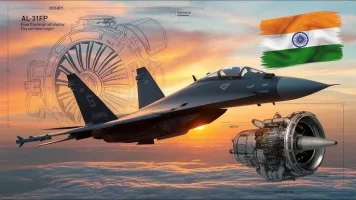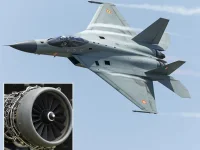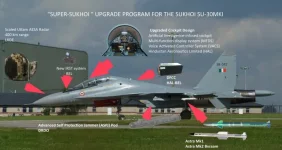- Views: 2K
- Replies: 18

NEW DELHI: Amidst ongoing concerns about the Indian Air Force's (IAF) fighter squadron strength, the Cabinet Committee on Security (CCS), led by the Prime Minister, approved a significant deal on Monday. This over Rs 26,000 crore deal aims to procure 240 AL-31FP aero-engines, critical for powering and maintaining the IAF's Sukhoi-30MKI fleet.
With the current squadron count at 30, well below the required 42 to effectively counter threats from both China and Pakistan, this move is crucial to bolstering the IAF's combat capabilities. The 240 AL-31FP aero-engines will be procured from Hindustan Aeronautics (HAL), a defensce PSU, which will source some components from Russia.
Notably, these engines will boast an indigenous content of over 54%, a significant increase due to the indigenization of certain key components. The engines will be manufactured at HAL's Koraput division, and deliveries are scheduled to commence in a year, with the entire order expected to be fulfilled over eight years.
The IAF currently operates 259 Sukhois, the majority of which were licensed-produced by HAL from Russia. This fleet forms the backbone of the IAF's combat capabilities. Additionally, 12 new Sukhois are being ordered for around Rs 11,500 crore, to replace those lost in accidents.
This recent approval follows the CCS's February clearance for new engines for the IAF's MiG-29 fighters, also to be manufactured by HAL in collaboration with Russia. The shift towards bulk orders for aero-engines, instead of piecemeal ones, is aimed at cost reduction and increased indigenous content.
India's longstanding challenge in indigenously producing aero-engines with the required thrust-to-weight ratio has been a major concern. The delay in the supply of GE-F404 engines by General Electric, for instance, has impacted the delivery schedule of 83 Tejas Mark-1A jets.
However, there's progress on this front. India and the US are in final negotiations for the co-production of GE-F414 jet engines for the Tejas Mark-II fighters, with a significant technology transfer component.
Additionally, plans are underway for a major indigenous upgrade of the existing Sukhoi fleet. This Rs 63,000 crore project aims to enhance their capabilities with advanced radars, avionics, and weaponry, extending their operational life by another 30 years.
This comprehensive approach – procuring new engines, upgrading existing fleets, and pursuing indigenous engine development – highlights India's determination to strengthen its air power and reduce its reliance on foreign suppliers.



